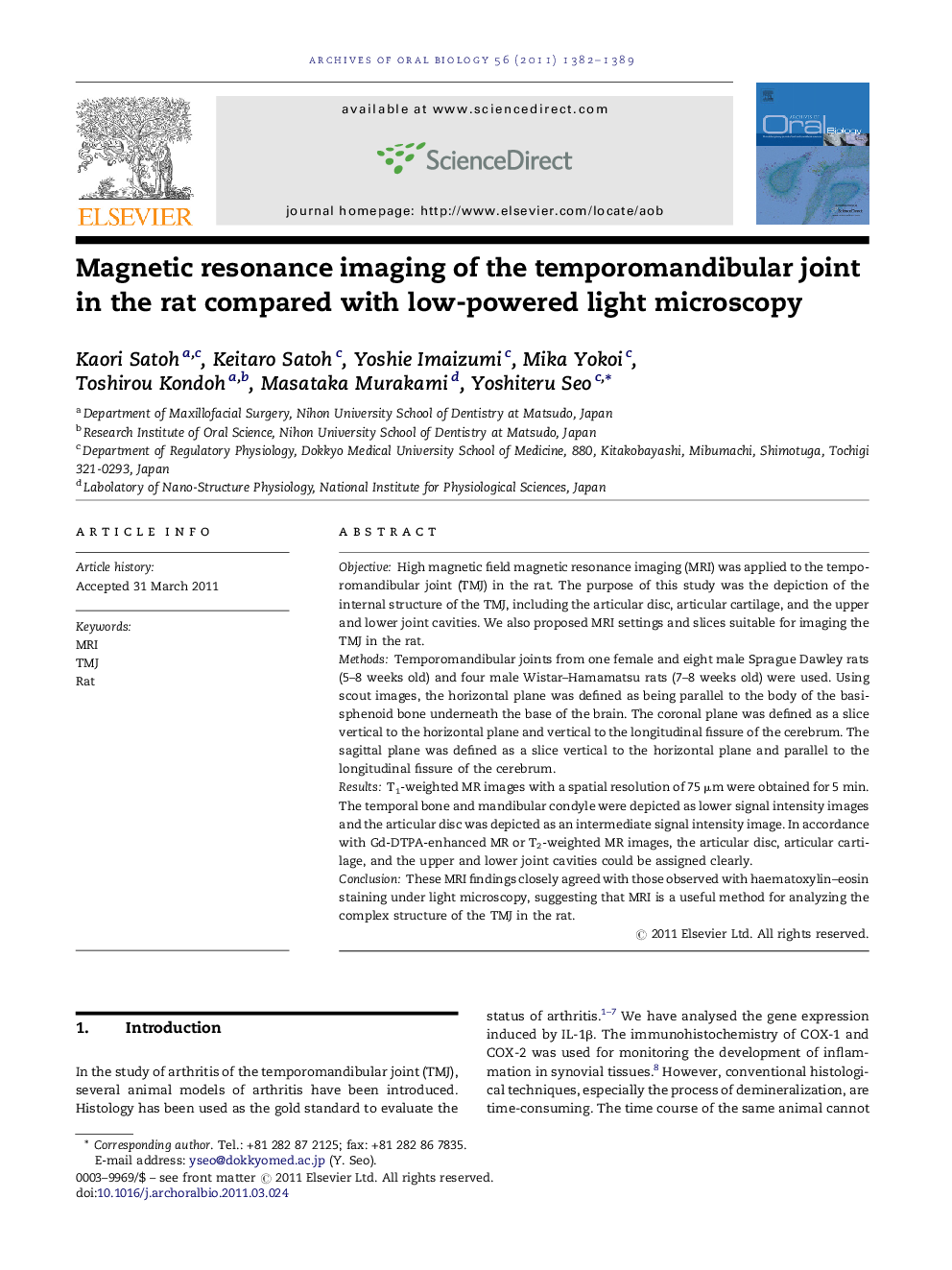| کد مقاله | کد نشریه | سال انتشار | مقاله انگلیسی | نسخه تمام متن |
|---|---|---|---|---|
| 6051498 | 1583342 | 2011 | 8 صفحه PDF | دانلود رایگان |

ObjectiveHigh magnetic field magnetic resonance imaging (MRI) was applied to the temporomandibular joint (TMJ) in the rat. The purpose of this study was the depiction of the internal structure of the TMJ, including the articular disc, articular cartilage, and the upper and lower joint cavities. We also proposed MRI settings and slices suitable for imaging the TMJ in the rat.MethodsTemporomandibular joints from one female and eight male Sprague Dawley rats (5-8 weeks old) and four male Wistar-Hamamatsu rats (7-8 weeks old) were used. Using scout images, the horizontal plane was defined as being parallel to the body of the basisphenoid bone underneath the base of the brain. The coronal plane was defined as a slice vertical to the horizontal plane and vertical to the longitudinal fissure of the cerebrum. The sagittal plane was defined as a slice vertical to the horizontal plane and parallel to the longitudinal fissure of the cerebrum.ResultsT1-weighted MR images with a spatial resolution of 75 μm were obtained for 5 min. The temporal bone and mandibular condyle were depicted as lower signal intensity images and the articular disc was depicted as an intermediate signal intensity image. In accordance with Gd-DTPA-enhanced MR or T2-weighted MR images, the articular disc, articular cartilage, and the upper and lower joint cavities could be assigned clearly.ConclusionThese MRI findings closely agreed with those observed with haematoxylin-eosin staining under light microscopy, suggesting that MRI is a useful method for analyzing the complex structure of the TMJ in the rat.
Journal: Archives of Oral Biology - Volume 56, Issue 11, November 2011, Pages 1382-1389